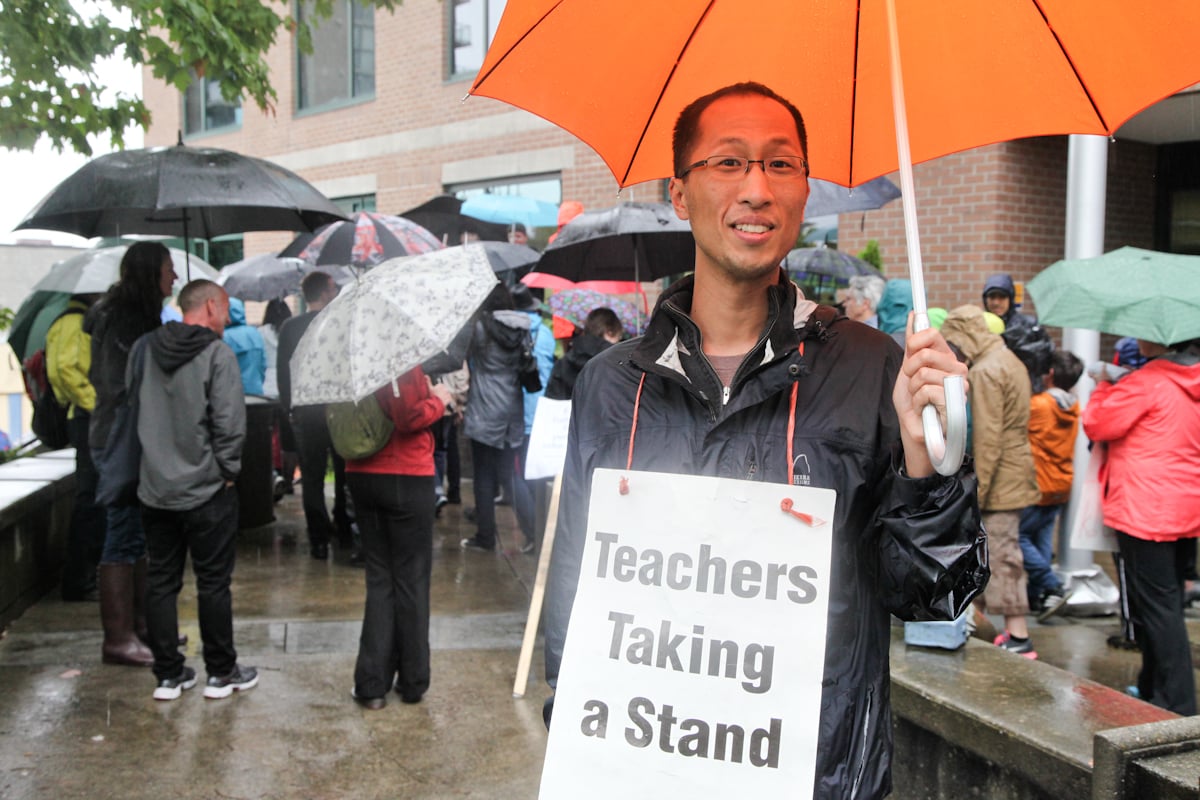It looks like education could be a central issue in next May’s provincial election. Here’s my list of seven key commitments that should form the core of education policy for whichever party is elected.
1. Make sure British Columbia is competitive when it comes to education funding. B.C. ranks ninth of the 10 provinces in per pupil funding, according to the Canadian Centre for Policy Alternatives, and it’s dropped dramatically as a percentage of GDP — from 3.3 per cent in 2001 to a projected 2.5 per cent in 2016 — about $2 billion a year. We don’t have to spend the most. But let’s reach for the top rather than race to the bottom. The new government should pledge to bring us into the top half of per pupil spending before the end of its four-year mandate. Imagine the reductions in class sizes, the improvements in services to kids with special needs, the schools that could be re-opened, the added librarians and counsellors if we weren’t scraping the bottom of the barrel when it comes to providing resources for our kids.
2. Stop spending public dollars on private schools. Parents have a right to send their kids to private schools. But they shouldn’t expect the rest of us to subsidize them. Funding to private schools, which has been increasing at a staggering rate, should be allocated to our public system — a system that welcomes every child regardless of religion, wealth, ability or disability. None of us would try to prevent people from playing golf at private golf courses if they want to, but people who play at private clubs don’t expect us to pay part of their green fees. Government should advocate enthusiastically for the public system and stop the drift to privatization.
3. Get on the right side of the debate over standardized testing. For serious educators, the argument is over. Standardized tests administered to every student in the province can’t and aren’t used to help improve the learning of individual students — they aren’t diagnostic. Even George Bush’s former education secretary, Diane Ravitch, has seen the light. Ravitch says test scores provide “no useful information” about the abilities of individual students. She also notes that testing and test prep take up valuable class time that could be better-used providing students with a full curriculum, including the arts. Children learn in different ways. That’s why a range of teacher-administered assessment tools, including carefully designed tests and exams, need to be used to evaluate our kids.
4. Reform the bargaining system. Everyone knows the way the government negotiates collective agreements with teachers doesn’t work. The current system leads to disruptions, endless litigation and frustration for all concerned. Some think we should go back more than 20 years to full local bargaining between teachers and their school boards. That’s not going to work, nor would it be the best system. When a contract provision costs money, it should be bargained directly with the funder — the province. But how to implement those changes — like smaller class sizes and improvements for students with special needs, for example — should be negotiated between the local teachers’ union and the local school board.
5. Start treating school boards with respect. Over the years the province has reduced school board powers. They have two primary functions remaining. The first is to take the flack when the government’s funding allocations require cuts to programs and services to children. The second is to advocate for the students in their district. Governments love the former, but are terrified of the latter — witness the anti-democratic firing of the Vancouver board. But school boards are the closest elected body to parents and communities. Of course they’re going to do advocacy.
6. Do something about improving secondary schools. There is a clear understanding among educators about how elementary schools should work, what curriculum makes the most sense, the best methods (different for different kids) for teaching and learning. Not so much for high schools. The province has begun a province-wide discussion about secondary schools. We need to have a serious conversation and debate about organization and structure; curriculum; schedules and times for learning; optimum school size; transitions into and out of high school — and much more.
7. Recognize the value of public education and become the leading advocate for our public schools. John Ralston Saul wrote, “Any weakening of universal public education can only be a weakening of democracy... I believe that there is a profound understanding in our society of the long-standing essential role universal public education plays in making us a civilized democracy.” Government can undermine confidence in our public schools — and in so doing undermine democracy itself — or it can be the central defender and advocate for our excellent public system.
B.C.’s public schools aren’t perfect, but with a government committed to respectful collaboration and to sensible and thoughtful reform we can make an excellent public education system even better. ![]()
Read more: Education, BC Politics















Tyee Commenting Guidelines
Comments that violate guidelines risk being deleted, and violations may result in a temporary or permanent user ban. Maintain the spirit of good conversation to stay in the discussion.
*Please note The Tyee is not a forum for spreading misinformation about COVID-19, denying its existence or minimizing its risk to public health.
Do:
Do not: